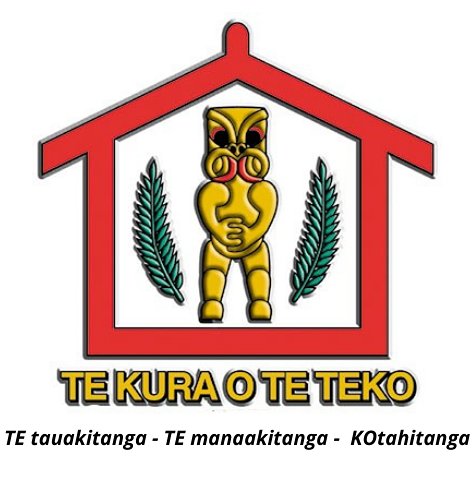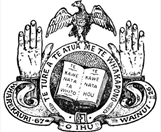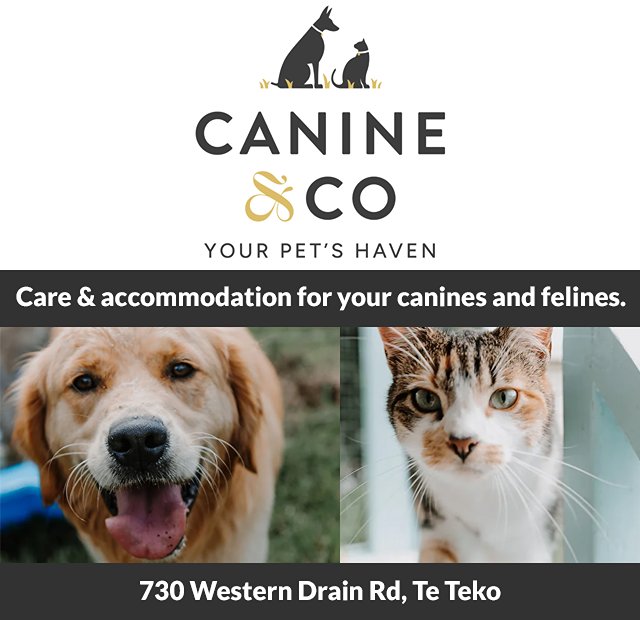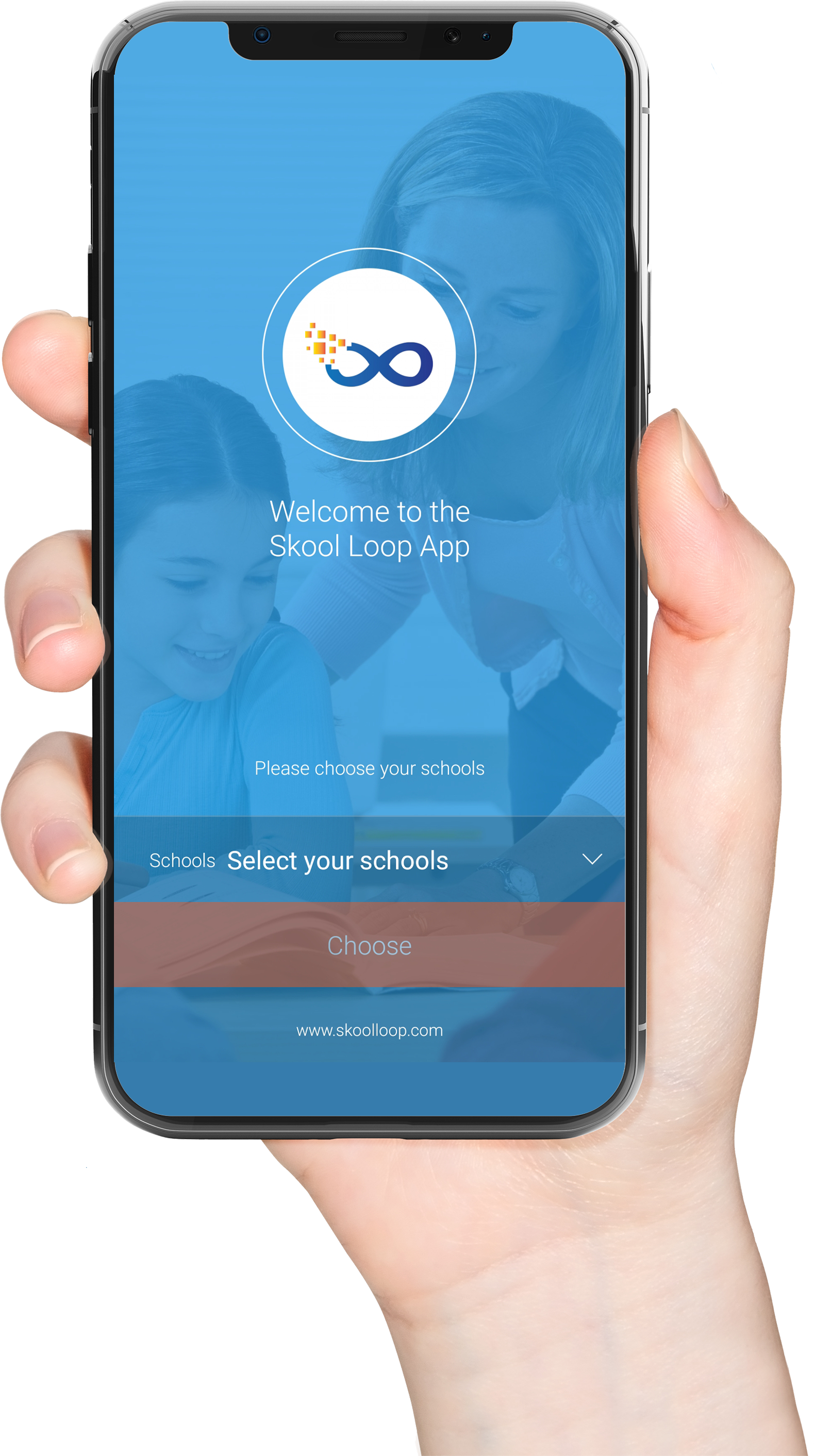
Te Kura o Te Teko

Te Kura o Te Teko
Focus for Learners
As part of a strong iwi (tribal) community, Te Kura o Te Teko students – through an approach which values and practises aspects of Te Ao Māori that are encouraged at our kura – such as manaakitanga (caring for others), whanaungatanga (collaboration) and mana (strength) – will learn about tikanga ā-iwi (tribal customs) and kawa to help strengthen cultural foundations and identity.
Programme of Learning
Assessment and Evaluation
Emphasis should be student use of tikanga and kawa in kura and as part of external excursions to marae or appropriate kaupapa Māori.
School Organisation
Kaiako will play an equal role in facilitating learning and teaching according to the scenario or context.
Te Kura o Te Teko has partitioned our tikanga into areas in which tikanga will be upheld and adhered during the school day. These include classrooms, eating areas, Koro Eruera, Te Ao Hou and the playgrounds. Each area has come from discussion, questions and experience to assist our students in the promotion and practice of tikanga Māori in their everyday lives.
Tikanga ā-Akomanga Classroom practices
Whakarārangi ki waho – tū Rangatira
Tū Rangatira
Wetekina ngā hū – whakapaihia hoki
Whatuira papatea
Tikanga kai ngā Waahi Kai
Tikanga kai Te Ao Hou, kai Koro Eruera rānei
The people of Ngāti Awa ki Rangitaiki have a long history that has been transferred inter-generationally through waiata, whakapapa, stories and legends. Within this information, our iwi has been able to pass on traditions, customs, stories and history that helps to make the local iwi who they are, and furthermore inscribes the platform from which younger generations may stand tall with confidence in the knowledge of where and whom they have come. This is tuakiritanga (identity) – the foundation - that upcoming generations may base their footing, in their pursuit of success and growth in whatever they choose to pursue and accomplish.
At Te Kura o Te Teko, teachers will utilise these traditions, customs and stories to provide a formal and informal learning and teaching platform used in the achievement of student success. Some of these stories have been listed below:
Iratumoana
Awanuiārangi II
Te Waka o Mataatua
Ngā hononga ki ngā iwi o Mataatua
Putauaki te maunga, Rangitaiki te awa
Te Tahi o Te Rangi
Motutohorā me ngā moutere o Rūrima
Ko ngā maunga hīkoi mā raro
Toi-kai-rakau
Ngā Atua Māori
Toroa
Maui-tikitiki-a-Taranga
Ngā Tīpuna Rongonui
Ngā hapū ō Ngāti Awa ki Rangitaiki
Wairaka
Te Kooti Arikirangi Te Turuki
Ngā kōrero tuku iho a Hamiora Pio

Focus of Learners
● To enable students to understand and become familiar with Karakia Ringatū (Ringatū faith) as part of their educational programme delivery
● To enable students to participate and perform karakia Ringatū with confidence.
Through teaching the process and delivery of karakia Ringatū, students will learn traditional skills and practices that enhance their knowledge of iwi traditions and customs, and encourages the use of karakia Māori among students, as a lifelong cultural practice. Karakia Ringatū was deliberately chosen as the preferred method of karakia practice as a broad, accessible basis from which students will be able to gain skills and practice in this area. The choice of karakia in no way disparages or seeks to override other religious practices, but is seen to consist of skills and practices that enable student participation in the custom and importance of karakia.
Programme of Learning
● Students will have daily opportunities to participate and practise karakia as part of their daily morning routine and at appropriate occasions.
● A cultural approach to knowledge transmission and focusing on appropriate contexts that have meaning for students will be followed and could incorporate occasions such as:
o Morning, daily karakia
o Before meal times
o Completion of daily activities/end of day routine
o Prior to travelling, taking up a new or unfamiliar role or activity
Assessment and Evaluation
Emphasis should be student use of karakia – their participation and execution – in kura as part of their daily kura routine.
School Organisation
A kaiako leads this curriculum area within the kura, with support.
Parents, please support our local businesses




Call Direct
Send Email
Visit Website

Call Direct
Send Email
Visit Website

Call Direct
Send Email
Visit Website

Scan this code to download the app
Download our Skool Loop App, a simple and free download. In Google Play & App Store search ‘Skool Loop’ and choose our school once installed.
